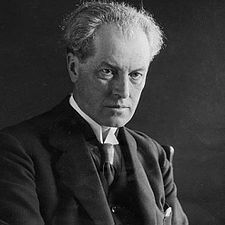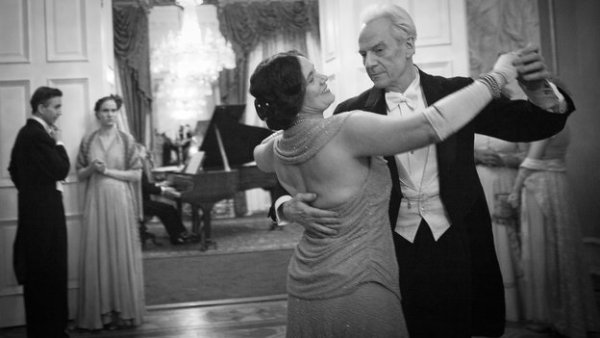Torgny Segerstedt was a courageous Swedish newspaper editor as Europe lurched toward the precipice of World War II. A former theologian who had a knack for recognizing the face of evil, he believed that the chancellor of Nazi Germany, Adolf Hitler, was the personification of the devil.

Of course, Segerstedt’s assessment of Hitler was not shared by all his fellow Swedes, who hewed to the belief that Sweden had no alternative but to accommodate itself to the new fascist order in Germany.
In accordance with this perception, the Swedish government of Prime Minister Per Albin adopted a policy of neutrality, thinking it could insulate Sweden from the turbulence engulfing Europe in the 1930s.
Jan Troell’s Swedish-language film with English subtitles, The Last Sentence, skillfully recreates the life and times of Segerstedt, who died in 1945 as the war wound down. It will be screened at the Royal theater (608 College Street) on Nov. 19 at 8:30 p.m. during the European Union Film Festival.
As the film opens, Segerstedt (Jesper Christensen), a tall and dignified man with a mane of white hair, writes a scathing anti-Hitler editorial for his newspaper in the southern city of Gothenberg. His judicious boss, Axel Forssman (Bjorn Granath), seems taken aback by its vehemence. He warns him that he’s just declared war on Germany. Segerstedt couldn’t care less. He’s on a one-man mission to expose Hitler.
The Last Sentence, though, is not only about Segerstedt the crusading journalist. It’s also about Segerstedt the adulterer. He and Forssman’s Jewish wife, Maja (Pernilla August), are having an affair. Segerstedt’s wife, Puste (Ulla Skoog), is aware of it, as is Forssman. For reasons never fully explained, neither Puste nor Forssman are seriously prepared to challenge Segerstedt.
Compared with the political issues that consume him, Segerstedt’s adultery is really a distraction. The issue at hand here is Sweden’s policy toward Germany. By 1938, Segerstedt’s enemies in Sweden have had their full of him. Much to his distress, one of his three beloved dogs is poisoned by one of his enemies.
After Albin (Kenneth Milldoff) makes a speech promising to keep Sweden out of a war, he instructs the foreign minister, Christian Gunther (Peter Andersson), to apply pressure on Segerstedt to tone down his editorials. Forssman confronts Segerstedt, too, informing him that upset advertisers are pulling out their ads from the newspaper.
In a pivotal scene rife with high tension, Albin accuses Segerstedt of compromising Sweden’s national security. Silence is acquiescence, Segerstedt retorts. Choose your words carefully so that Sweden will not be plunged into a war with Germany, Albin counters.

The Swedish monarch, King Gustav V, tries to sway Segerstedt as well. Swedes would prefer to be Germans rather than Russians, the king says in an allusion to his hatred of communism. Segerstedt is unmoved. The forces of evil, as represented by the Nazi movement in Germany, must be fought, he argues.
Troell’s film portrays Segerstedt in saintly hues, despite his blatant philandering. Christensen, sober and serious, is completely plausible as a man of conscience who will not betray his principles to the highest bidder. The rest of the cast is also impressive.
The Last Sentence recreates a troubling era when Sweden’s fate hung in the balance. As a political drama, it works like a well-oiled machine.